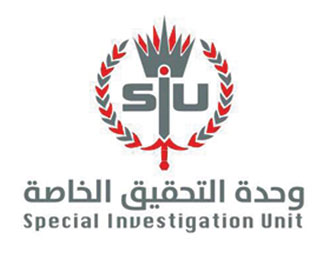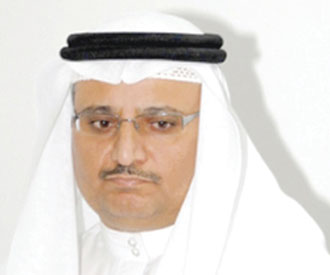
|
 |
 |
|
|
|
|
|
|
|
|
|
|
|
|
|
|
|
|
|
|
|
|
|
|
Public Prosecution’s Response to HRW Report‘HRW Failed in Finding the Truth’On February 3rd, 2016, the Public Prosecution, through Advocate General, Abdulrahman Al Sayed, responded to Human Rights Watch’s (HRW) annual report which covered the developments in the Bahraini human rights situation in 2015. Al Sayed said that the report was based on ‘unofficial and unreliable information’, adding that HRW “has failed to find the truth. This resulted from HRW officials’ methodology of quoting others without taking the trouble to carry out research, scrutiny and investigation, to ascertain the authenticity of the news reported to them. This led to the false conclusions contained in the report”. Advocate General Al Sayed, responded to some of the key issues, included in HRW’s report, particularly with regard to the performance of the Special Investigation Unit (SIU), affiliated to the Public Prosecution. HRW report claims that the SIU has not conducted any investigations that have led to the conviction of any individuals for acts of torture in cases relating to Bahrain’s political unrest (the events of 2011). Special Investigation Unit
The Advocate General responds by saying “This claim is incorrect, and conflicts with reality, as reflected in the investigations conducted or being conducted by the SIU and the sentences issued regarding the cases which the SIU referred to the competent courts. It even conflicts with SIU’s reports which include detailed explanations on the nature of the complaints and investigated by the SIU, as well as SIU’s decisions and actions in respect of the cases registered with the SIU. The SIU has been publishing these reports regularly on a monthly basis. HWR only had to make a little effort in following up SIU’s activities to find out the truth”. The public prosecution has also asked the Special Investigation Unit (SIU) to express its opinion regarding the allegations made in Human Rights Watch annual report with respect to SIU’s activities. The following is a brief summary of the SIU’s reply:
Based on SIU’s response, the Advocate General, Abdulrahman Al Sayed, concludes that the latter “contrary to HRW’s report claims, has initiated legal procedures to investigate into any allegations of torture, cruel treatment or degrading treatment. The SIU is still proceeding with its duties through serious and effective investigations for this type of complaints and reports. The SIU conducts its investigations with full independence and in light of the rules set forth in Istanbul Protocol for effective Investigation and Documentation of torture and other cruel treatment.” Effectiveness of the new institutionsThe Public Prosecution’s Advocate General, Abdulrahman Al Sayed, continued his response to HRW’s report, describing it as “arbitrary and contrary to the truth” in its views about the Kingdom’s institutions established to implement the recommendations of the Bahrain Independent Commission of Inquiry (BICI); and in particular the SIU, which HRW described as being unable to hold accountable the security forces and those responsible for torture and ill-treatment of detainees.
Al Sayed said that HRW “cited the insurgency incident that took place in Jaw prison in March 2015 and the use of force by security forces to quell this rebellion. But HRW’s citation in itself is proof of HRW’s failure to investigate the truth and to verify the information it receives. SIU has been carrying out an investigation into this incident since receiving the Public Prosecution’s notification of the same. The SIU is also investigating the complaints it has received from a number of inmates. The SIU has declared all this in its periodic reports, as well as its press statements which HRW failed to follow up. Hence, the SIU is already in the process of bringing to account and holding accountable any person from among the security forces against whom a charge is proved, as revealed by the investigation”. Harassment of activistsThe Advocate General, Abdulrahman Al Sayed, also responded to the case of Nabeel Rajab, in which the HWR report said that Rajab has been tried as a ‘prominent human rights activist’ for criticizing the government on social media, and was sentenced to six months in prison for offending national institutions until he was released by virtue of a royal pardon for health reasons. Al Sayed responds by saying that “the Public Prosecution has charged Nabeel Ahmed Abdulrasool Rajab under case number 07201409039 for insulting two official institutions namely: the Ministry of Interior and Bahrain Defence Force, by publishing tweets on the social networking site ‘twitter’ where he said that members of Bahraini security and military institutions belong to the terrorist organization Da’esh [ISIS], and that those institutions are the intellectual incubator of that extremist ideology” Al Sayed added that “the aforementioned defendant has been questioned in the presence of his lawyer, and he has admitted to committing the physical act of the crime by publishing those tweets. Accordingly, the prosecution ordered that the defendant be detained under remand, and referred under custody to the criminal trial. The competent court examined the case and decided to release him. The court convicted him on 20/1/2015 and he was punished with imprisonment for six months, with a bail of 200 dinars to grant a stay of execution. The defendant challenged the verdict by appealing to the Criminal Court. The Appeals Court upheld the verdict. The defendant then challenged the ruling before the Court of Cassation, which rejected his appeal and upheld the sentence.” The Advocate General, Abdulrahman Al Sayed continues by pointing out that “It should be stressed that the judiciary in the Kingdom of Bahrain, is impartial. Its decisions and actions are free from any influence. It does not question any person, whether Nabeel Rajab or the others mentioned in HRW’s report, for their capacity, opinion, belief or activity, but applies the provisions of the law where any person actually commits what the law deems a punishable crime. It must also be noted on the other hand, that HRW has not adopted a neutral stance at all when its report contradicted facts by declaring simplistically that Nabeel Rajab has been convicted for expressing his opinion, and criticism of the government. HRW even went on to alter- on its own accord- the phrases posted in his tweets in an unjustified attempt to reduce the criminal responsibility for which the aforementioned was prosecuted. HRW mentioned that the aforementioned tweeted saying that “Bahraini security forces foster violent beliefs akin to those of the extremist group Islamic State (also known as Da’esh)”, but in his posted tweets he accuses the Kingdom’s security and military staff explicitly, and not implicitly or in terms of beliefs held, as claimed by HRW. Because he asserted positively that they belonged to Da’esh [ISIS] and that these agencies are the intellectual incubators of such extremist ideology. This indicates HRW’s indiscriminate dependence on whatever news is reported to it. It indicates that HRW has seriously failed to investigate the truth, prior to reaching the opinion set forth in its report, unless its opinion has otherwise been reached for some other reason”. The Advocate General also responded to HRWs report concerning the arrest of the leaders of Al Wifaq and Waad [National Democratic Action] societies, adding that “… the same response applies to the false information mentioned in the report concerning Ibrahim Sharif and Ali Salman whose charges go beyond the freedom of opinion and expression with which HRW justifies their actions. They have committed crimes punishable by law, and it should be noted that the cases against Ibrahim Sharif and Ali Salman are still under judicial proceedings with all due legal guarantees accorded |

